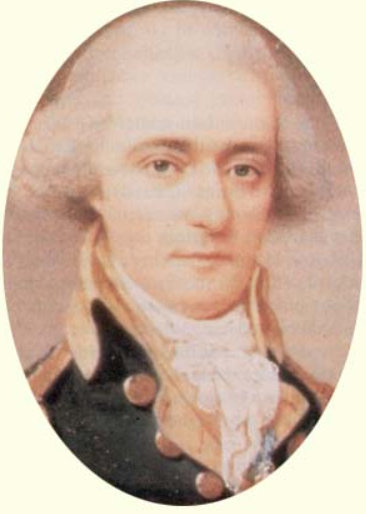William Samuel Johnson - Represent
William Samuel Johnson was a Delegate to the Stamp Act Congress and Constitutional Convention, but had a bout of Loyalism along the way.
Published 4/2/18 - Updated 10/26/21
New York
William Samuel Johnson began representing his home colony of Connecticut as early as 1765. In this year, he went to New York for the Stamp Act Congress.
The Stamp Act Congress was the first time the colonists came together to discuss a response to unfair British taxation.
At the meeting, Johnson assisted in drafting the letter to King George about colonial rights.
England
William Samuel Johnson soon traveled to England on another mission to represent Connecticut, this time to Parliament.
Although they had no say there, most colonies had an agent in London to stand up for their interests. Benjamin Franklin was also in attendance, representing Pennsylvania and Delaware.
During this time, Johnson realized the harsh British taxes were not being implemented to make outrageous demands on the colonists. Instead, they were unaware of American attitudes and ignorant of the reactions to these policies.
Staying Out of It
When Johnson returned home, he was appointed to the Connecticut Supreme Court, holding the position until the start of the Revolutionary War.
Due to his belief that separation would adversely effect both Great Britain and America, he was not immediately a revolutionary. In fact, he did his best to stay out of politics throughout the hostilities.
It is important to note that an estimated 1/3 of Americans did not take sides in the war, so Johnson's decision was not necessarily uncommon.
Continental Congress
After the war ended, Johnson began to participate in the new government.
Although some people were suspicious of him for staying out of the Revolution, his knowledge of the law was internationally respected. He was therefore sent by Connecticut as a representative to the Congress of the Confederation.
Interestingly, William Samuel Johnson was also asked to represent Vermont in Congress.
At this time, New York and New Hampshire had been fighting over the large piece of land north of Massachusetts. What we now know as Vermont declared itself an independent territory. The Vermont Republic held out hope of becoming the 14th State.
Because York and Hampshire were being such crybabies, Vermont was not allowed to send a representative to Congress.
They asked William Johnson (serving in Congress already) to represent them in addition to Connecticut. He did so and later received a large tract of land in exchange for his service.
Constitutional Convention
Johnson continued serving Connecticut (and Vermont) when he was sent tot the Constitutional Convention. He became a Federalist because his time working under the Articles of Confederation had convinced him of the need of a stronger federal government.
At first, Johnson fought to get better representation for the smaller states. He eventually helped gather votes for Roger Sherman’s Connecticut Compromise (aka the Great Compromise) which developed the method of representation we use in the United States today.
William served on the Committee on Style which drafted the Constitution before signing the document he helped create.
Johnson was then elected as an inaugural member of the US Senate and spent the rest of his career as the President of King’s College.
For a new story every day, sign up for my email list or follow me on FaceBook or Twitter.
Check out these books related to William Samuel Johnson:







